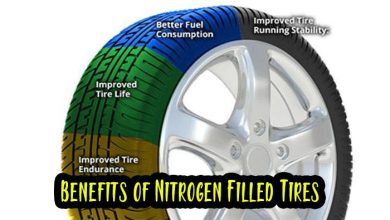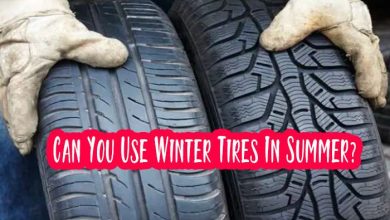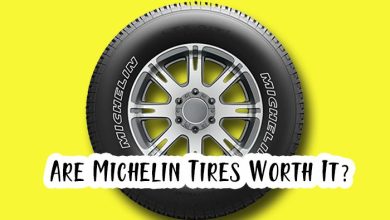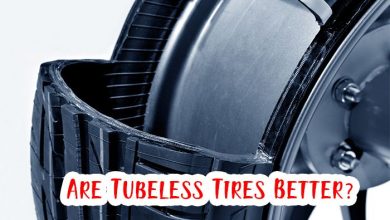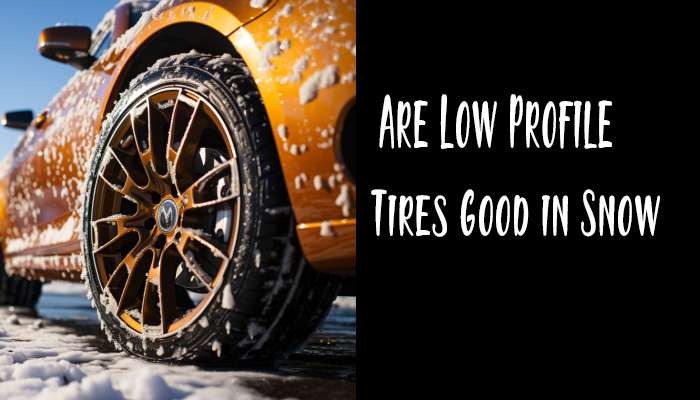What Could Cause Car Sounds Like It Has A Flat Tire But Doesn’t
As a tire expert with a deep understanding of how tires and rims work, I’m here to address a common concern among car owners: that unsettling noise that makes you wonder if you have a flat tire.
In this comprehensive guide, we will explore the possible reasons behind your car sounding like it has a flat tire when it doesn’t. We’ll also delve into how to identify the source of the sound and, most importantly, how to resolve the issue. So, let’s roll!
Identifying The Sound
Before we dive into the potential causes, let’s pinpoint the distinctive noise that often triggers alarm bells in drivers’ minds. The sound you hear may resemble a rhythmic thumping, flapping, or even a low rumbling noise, almost as if you’re driving on a flat tire.
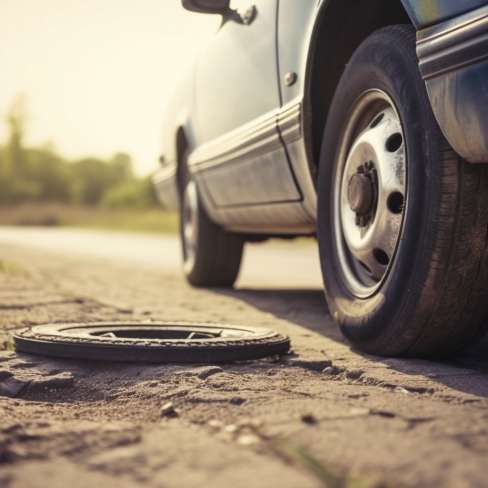
Pay close attention to this noise is essential as it can indicate various underlying issues. Read my recent post- Can I Put Different Size Tires on My Car?
Differences between Flat Tire Sounds and Other Issues
To unravel the mystery of your car’s perplexing noise, it’s crucial to distinguish between the sound of a flat tire and other possible culprits. Here are some key differences:
Real Flat Tire Sound
- Consistency: A real flat tire will produce a consistent hissing sound, especially as you drive.
- Change with Speed: The sound will intensify as you drive faster, and you’ll feel a noticeable difference in handling.
- Visual Inspection: You might see a visibly flat or deflated tire upon inspection.
Mysterious Sound
- Intermittent Noise: If your car’s noise is intermittent, it might not be a flat tire.
- No Handling Change: The handling and ride quality usually don’t change when this sound occurs.
- Tire Inspection: When you check the tires, they look perfectly fine.
What Could Cause Car Sounds Like It Has a Flat Tire But Doesn’t?
Now that we’ve clarified the differences in sounds let’s explore the various reasons why your car might mimic a flat tire:
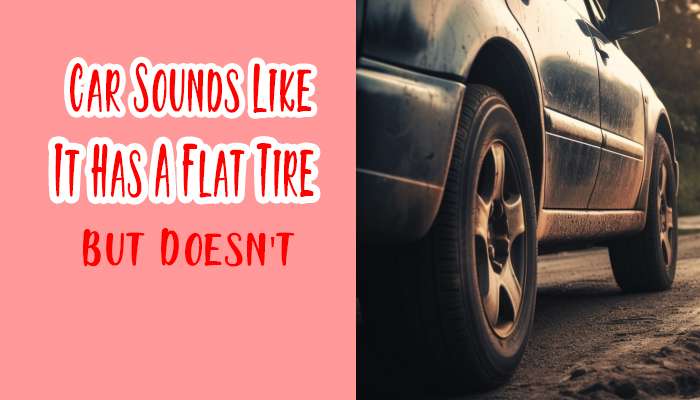
1. Tire Tread Wear
One of the most common reasons for tire-related noises is uneven tire tread wear. When the tread on your tires becomes uneven, it can create a sound similar to that of a flat tire. Regular tire maintenance, including rotation and alignment checks, can help prevent this issue.
2. Wheel Alignment Problems
Misaligned wheels can cause your tires to wear unevenly, leading to that flat tire-like sound. If your steering wheel feels off-center or your car pulls to one side, it strongly indicates wheel alignment issues.
Read More: Are Pirelli Scorpion Zero Tires Good in Snow?
3. Suspension Problems
A damaged or worn-out suspension system can result in unusual noises, including the flat tire sound. Squeaks, creaks, or groans driving over bumps or uneven terrain might be signs of suspension trouble.
4. Brake Issues
Faulty brakes can also contribute to the noise. Worn-out brake pads or rotors can produce a scraping or grinding sound that might be confused with a flat tire noise.
5. Wheel Bearings
Bad wheel bearings can mimic the sound of a flat tire, especially if they are severely damaged. A telltale sign of failing wheel bearings is a growling or rumbling noise that intensifies when turning.
6. Tires Hitting Debris
Sometimes, foreign objects or debris lodged between the tire treads can create a sound similar to a flat tire. Inspect your tires for any foreign objects that may be causing the noise.
7. Underinflated Tires
While not exactly mimicking a flat tire, underinflated tires can produce unusual noises and affect your vehicle’s handling. Regularly check and maintain proper tire pressure to avoid this issue.
How To Solve The Problem?
Now that we’ve identified potential causes let’s discuss how to resolve the issue of your car sounding like it has a flat tire:
1. Tire Maintenance
Regularly inspect your tires for signs of uneven wear and tear. Rotate them as your vehicle’s manufacturer recommends and ensure proper tire inflation. This simple maintenance can often eliminate the noise.
2. Wheel Alignment

If you suspect wheel alignment issues, it’s essential to have your wheels aligned by a professional. Proper alignment eliminates noise and ensures even tire wear and better fuel efficiency.
3. Suspension Repairs
If you believe your suspension system is the culprit, consult a mechanic for a thorough inspection. Replacing worn-out or damaged suspension components can resolve the issue and improve ride comfort.
4. Brake Check
Address brake-related noises promptly by having your brake pads and rotors inspected. Replacing worn-out brake components can eliminate the sound and ensure your brakes function correctly.
5. Wheel Bearing Replacement
If bad wheel bearings are the cause, they should be replaced immediately. Ignoring this issue can lead to further damage and safety hazards.
6. Debris Removal
Inspect your tires for any foreign objects or debris stuck in the tread. Remove them carefully to eliminate the noise.
7. Maintain Proper Tire Pressure
Keep your tires properly inflated to the manufacturer’s recommended levels. Regularly check and adjust tire pressure to avoid underinflated tires.
By addressing these potential causes and following these solutions, you can end the perplexing noise that makes your car sound like it has a flat tire when it doesn’t.
Frequently Asked Questions
What should I do if my car sounds like it has a flat tire?
Start by identifying the source of the noise. Check your tires for visible damage or foreign objects stuck in the tread. If you can’t find any issues, it’s advisable to consult a professional mechanic to diagnose and resolve the problem.
Can I continue driving if my car makes this sound?
While ignoring unusual car noises is not advisable, the urgency depends on the underlying cause. If you suspect a flat tire or a severe issue with your vehicle’s safety systems, it’s best to pull over and assess the situation. Driving without addressing the problem can lead to further damage or safety hazards.
Can a bad wheel bearing sound like a flat tire?
Yes, a bad wheel bearing can produce a noise that resembles a flat tire sound. Wheel bearings are crucial components in your car’s wheel assembly, and if they become damaged or worn out, they can emit a growling or rumbling noise, especially when turning. Prompt replacement is necessary to ensure your safety and prevent further damage to your vehicle.
Why is my car shaking and feels like a flat tire?
A car that feels like it has a flat tire and exhibits shaking may be experiencing issues with its tires, wheels, or suspension system. Common causes include uneven tire wear, misaligned wheels, or damaged suspension components. It’s essential to have your vehicle inspected by a qualified mechanic to diagnose and address the problem.
Conclusion
Strange noises can be unsettling in the automobile world, but they are often solvable puzzles. When your car sounds like it has a flat tire but doesn’t, it’s essential to stay calm and methodically investigate the possible causes.
You can enjoy a quieter, smoother, and safer ride by following the guidelines and solutions outlined in this comprehensive guide. Remember that regular maintenance and timely repairs are key to keeping your vehicle in top-notch condition and ensuring your peace of mind on the road.
Reference Link
https://www.kaltire.com/en/can-you-drive-on-a-flat-tire.html
Glossary
- Tire Tread: The pattern of grooves and ridges on a tire’s surface that provides traction and grip on the road.
- Wheel Alignment: Adjusting a vehicle’s suspension and steering components to ensure the wheels are correctly aligned with each other and the road.
- Suspension System: The collection of components that connect a vehicle’s wheels to its chassis, providing support and allowing for smooth, controlled movement.
- Brake Pads: Friction materials that press against the brake rotors to create the necessary friction for slowing down or stopping a vehicle.
- Wheel Bearings: Components that allow wheels to spin smoothly while bearing the vehicle’s weight.
- Underinflated Tires: Tires with insufficient air pressure can affect handling, fuel efficiency, and tire wear.
